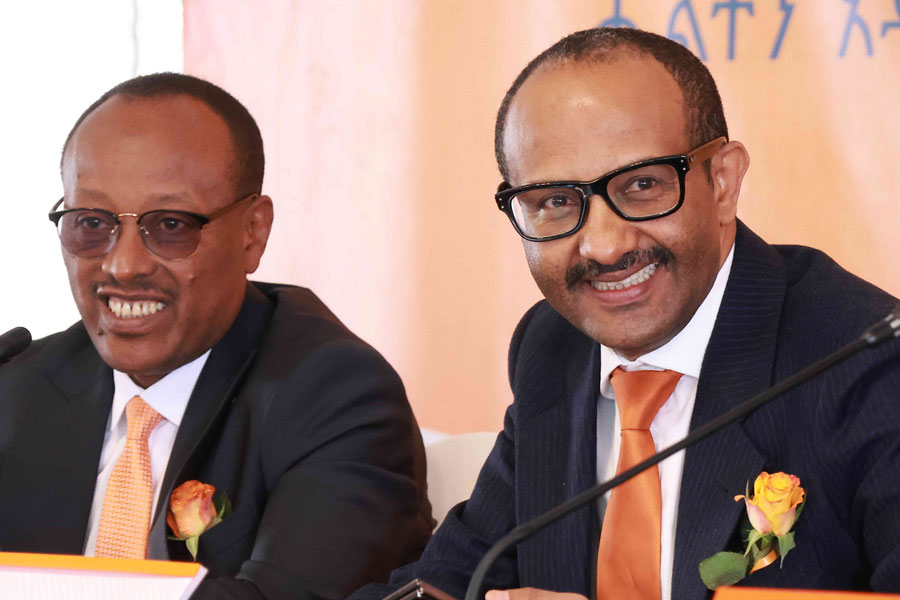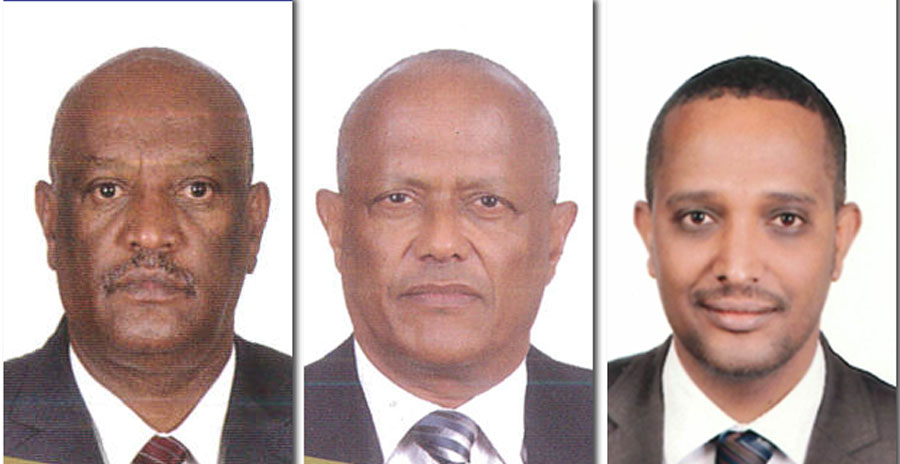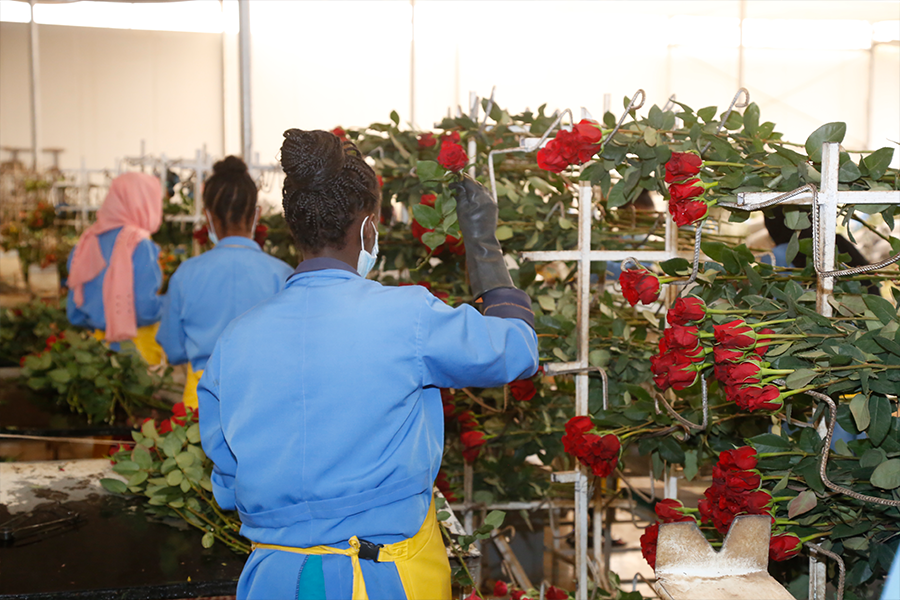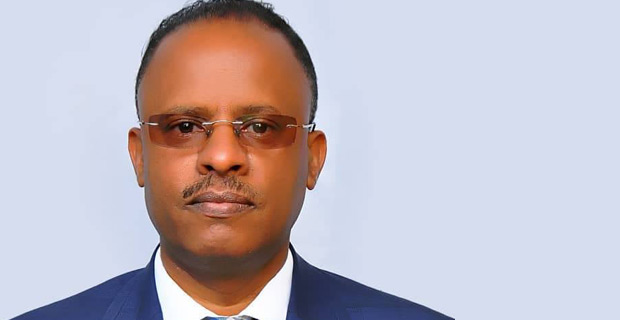
Radar | Oct 11,2020
If approved by the Ministry of Finance, the Development Bank of Ethiopia (DBE) will source funding by selling bonds and through development partners to finance development projects. The central bank ceased financing the policy bank starting from this new fiscal year.
The change committee comprised of the Finance Ministry, the central bank and DBE, has prepared a document that proposes alternate sources of funding. The proposal is part of the five-year reform plan of the Bank, which is working on refining the operations of the Bank and addressing the structural drawbacks.
The new source of funding will replace the former channel where the central bank has been injecting money into the policy bank. A few years ago, the central bank issued a directive whereby all private commercial banks funneled 27pc of their loan portfolios into bonds issued by DBE, which used the funds to boost loans to the manufacturing sector. However, the central bank repealed the directive at the end of last year.
Before the proposal was sent to the Public Enterprises Holding & Administration Agency, the board of the 110-year-old Development Bank approved the document two months ago. During sessions in which the document was scrutinised, time deposits were removed as an option due to risks associated with the security. After approving the document, the board sent it to the Ministry of Finance for final approval.
The document went through a rigorous process before it reached the Finance Ministry, according to Natnael Hailu, strategy, change & communications acting director at DBE.
Raising funding from time deposits would not have been cost-effective for the Bank since time deposits are usually offered at a high interest rate and the Bank would have to pay a fee to arrange it with a counterpart financial institution, according to Sewale Abate, an associate dean at Addis Abeba's School of Business & Economics and board chairperson of Bunna Bank.
"This will never be cost-effective to a bank that gives out loans on a long-term basis at a very low interest rate," he said. "In addition, these time deposits mostly pan out in a short-term period, meaning they wouldn't be favorable for the way DBE operates."
The bond market option is seen as a stronger candidate once the central bank launches the nation's first capital market in 2021.
"It will advance more than the current bond market, as the bonds can be traded in the secondary market as well," said Natnael.
DBE first started issuing savings bonds close to a decade ago.
The policy bank expects to secure financing from development agencies including the World Bank, the International Fund for Agricultural Development, and the Japan International Cooperation Agency.
The policy bank is going back to its old ways of getting funds, according to Sewale.
"For years, the Bank was supported through financing from development agencies," he said.
On the other hand, even after the stock market is realised there will be high competition with private banks as well, which means the bonds' interest rates would have high competition, according to Sewale.
"It wouldn't be in favor of the Bank," he said.
Two months back, lawmakers approved 21 billion Br in cash injections to recapitalise the Bank, which was drowning in defaulted loans that did not match its paid-up capital. The capital injection is interest-free with a five-year grace period and has to be paid back in 14 years.
Over the past couple of years, the Bank has been grappling with a higher rate of non-performing loans, which reached as high as 40pc in 2018.
Run by a president, five vice presidents and 26 directors, the Bank currently has total outstanding loans of 53.6 billion Br. It has dispersed fresh loans of eight billion Birr in the recently ended fiscal year and collected 7.6 billion Br in loan repayments.
However, the most significant non-performing loans of the Bank lie with manufacturing companies including Ayka Addis Textile, BMET and Else Addis Textile Factory. The Bank has given companies the space to pay back the defaulted loans even after 20 years. This exceeds the maximum cap of 20 years DBE sets for rescheduled loans.
The expert argues that the reform should focus on halting all government intervention with the use of various policy instruments.
There should be an extensive check for proposals and continuous follow up on the usage of the loan to administer checks and balances, and the loans should be released phase by phase after seeing the work on the ground being done, according to the expert.
"These are the ways for the redemption of the Bank," he added.
PUBLISHED ON
Aug 16,2020 [ VOL
21 , NO
1059]

Radar | Oct 11,2020

News Analysis | Jan 19,2024

Radar | Jul 29,2023

Radar | Apr 03,2021

Fortune News | Apr 26,2019

Fortune News | Feb 19,2022

Radar | Mar 18,2023

Fortune News | Dec 10,2018

Fortune News | Aug 18,2024

Fortune News | Dec 29,2018

Dec 22 , 2024 . By TIZITA SHEWAFERAW
Charged with transforming colossal state-owned enterprises into modern and competitiv...

Aug 18 , 2024 . By AKSAH ITALO
Although predictable Yonas Zerihun's job in the ride-hailing service is not immune to...

Jul 28 , 2024 . By TIZITA SHEWAFERAW
Unhabitual, perhaps too many, Samuel Gebreyohannes, 38, used to occasionally enjoy a couple of beers at breakfast. However, he recently swit...

Jul 13 , 2024 . By AKSAH ITALO
Investors who rely on tractors, trucks, and field vehicles for commuting, transporting commodities, and f...

Jun 28 , 2025
Meseret Damtie, the assertive auditor general, has never been shy about naming names...

Jun 21 , 2025
A well-worn adage says, “Budget is not destiny, but it is direction.” Examining t...

Jun 14 , 2025
Yet again, the Horn of Africa is bracing for trouble. A region already frayed by wars...

Jun 7 , 2025
Few promises shine brighter in Addis Abeba than the pledge of a roof for every family...